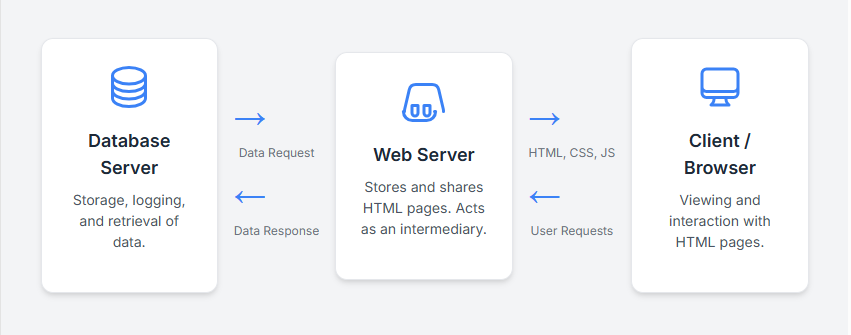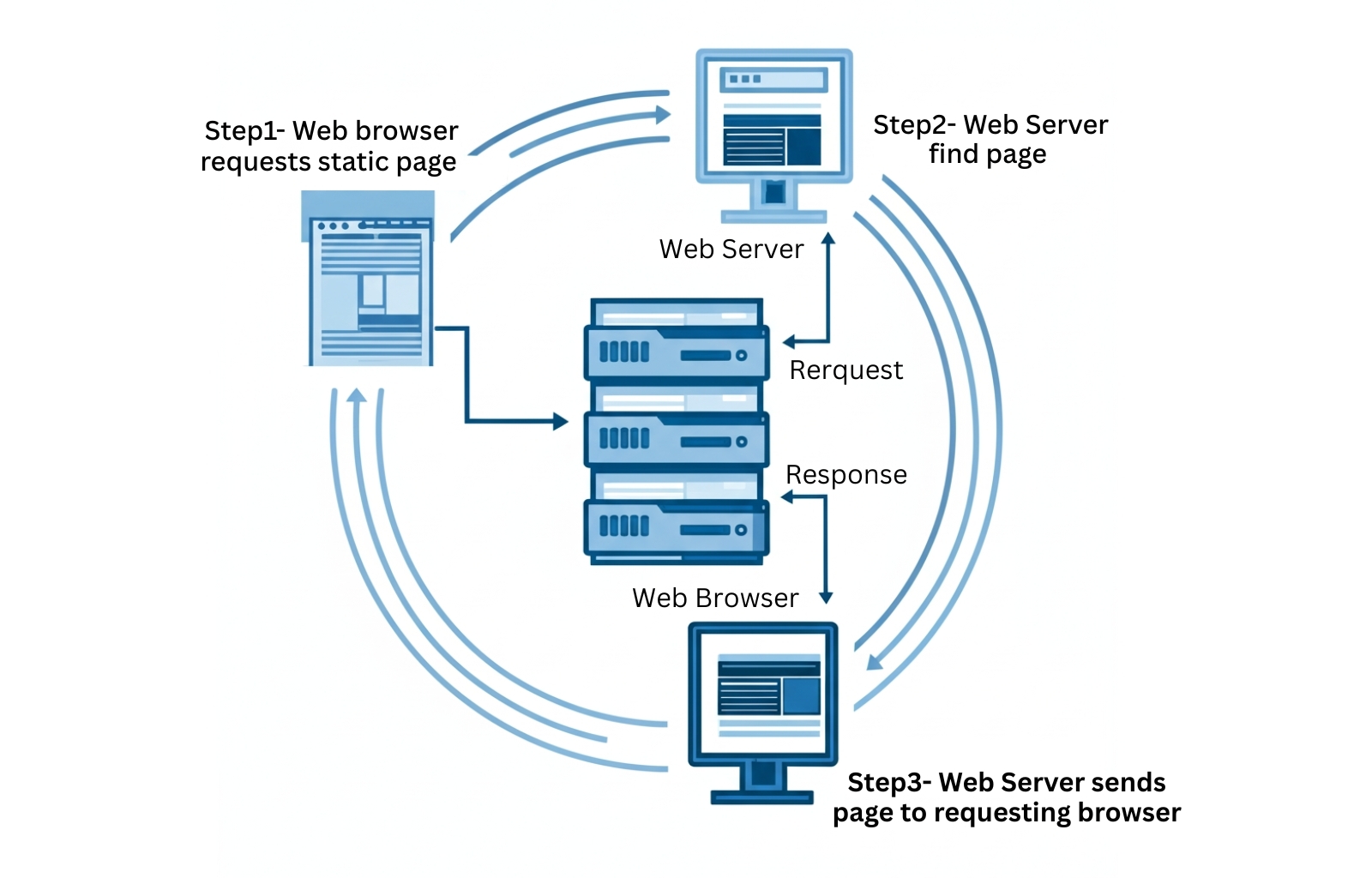Struggling to choose between a static vs dynamic website? You're not alone. In today's digital landscape, your website's foundation can make or break your online presence. Whether you're launching a portfolio, starting a blog, or building an e-commerce empire, understanding the static vs dynamic website debate is crucial.
But here's the good news: you don't need to be a tech expert to make the right call. We're breaking down everything simply: no jargon, just clear insights to help you decide what works best for your goals, budget, and growth plans.
Ready to discover which website type will give you the competitive edge? Let's dive in.
What is a Static Website?
A static website with fixed content uses HTML, CSS, and JavaScript. Unless you manually update the code, every visitor sees the same information.

Use Cases for Static Websites:
- Portfolio websites (showcasing work samples)
- Small business brochures (basic info, contact details)
- Landing pages (promotional or lead-generation pages)
- Documentation sites (technical guides, FAQs)
- Event pages (one-time conferences or product launches)
Pros of Static Websites:
- Blazing Fast Speed—No server-side processing means quicker load times.
- Enhanced Security—Fewer vulnerabilities since there are no databases or server-side scripts.
- Lower Hosting Costs—No need for complex server setups.
- SEO-Friendly—Clean code and fast performance boost search rankings.
Cons of Static Websites:
- Manual Updates Required—Changing content means editing code directly.
- Limited Functionality—No user logins, real-time data, or interactive features.
What is a Dynamic Website?
A dynamic website generates content on the fly using server-side languages (PHP, Python, Node.js) and databases (MySQL, MongoDB). As a result, Content changes based on user interactions.

Use Cases for Dynamic Websites:
- Blogs & news sites (frequent content updates)
- E-commerce stores (product listings, shopping carts)
- Social networks (user profiles, feeds, messaging)
- Web applications (dashboards, CRMs, SaaS platforms)
- Membership sites (login portals, subscription content)
Pros of Dynamic Websites:
- Easy Content Management—Use CMS platforms like WordPress to update content without coding.
- Personalized User Experience—Show tailored content based on user behavior.
- Advanced Features—Support for e-commerce, forums, and member logins.
Cons of Dynamic Websites:
- Slower Performance—Database queries and server processing add load time.
- Higher Maintenance—Requires regular updates and security patches.
- More Expensive Hosting—Needs powerful servers to handle dynamic requests
Static vs Dynamic Website: Key Differences
|
Feature |
Static Website |
Dynamic Website |
|
Content Updates |
Manual coding |
CMS or database-driven |
|
Speed |
Faster |
Slower (depends on optimization) |
|
Security |
More secure |
Requires regular security checks |
|
Cost |
Cheaper |
More expensive (hosting & dev) |
|
Scalability |
Limited |
Highly scalable |
|
Best For |
Brochure sites, portfolios |
Blogs, e-commerce, web apps |
Hybrid Approach: Static and Dynamic Elements in One Website
Many modern websites combine static and dynamic elements to get the best of both worlds. Here's how it works:
Static Foundation with Dynamic Components:
- Use a static site generator (like Gatsby or Jekyll) for fast-loading pages
- Add dynamic features via JavaScript (APIs, comments sections, search)
Headless CMS Setup:
- Store content in a CMS (Contentful, Strapi)
- Pull it into a static site for better performance
Benefits of Hybrid Websites:
- Improved Performance—Static pages load instantly
- Easier Content Updates—Dynamic CMS backend for non-technical users
- Scalable Functionality—Add interactive features as needed
Examples:
- A marketing site (static) with a contact form (dynamic)
- A blog with static pages but dynamic comments
- An e-commerce store with product pages (static) and a cart system (dynamic)
Which One Should You Choose? Let WOWinfotech Help You!
Still can't decide between static, dynamic, or hybrid websites? That's where WOWinfotech comes in! As your trusted web development partner, we'll analyze your needs and build the perfect solution tailored to your business goals.
Here's why to choose WOW Infotech:
Expert Consultation: We'll assess your requirements and recommend the ideal website type
Bespoke Static Sites: Blazing-fast, secure websites perfect for your portfolio or business showcase
Dynamic Powerhouses: Feature-rich websites with CMS integration for effortless content control
Hybrid Solutions: Get the perfect balance of speed and functionality
Key takeaway
The decision to have a static vs dynamic website ultimately shapes your online presence, performance, and growth potential. Whether you need the simplicity of a static site, the power of a dynamic platform, or the perfect hybrid balance, your choice will define how you connect with your audience.
If you're just starting, a static site might be perfect. However, need advanced features? Go dynamic. Want the best of both? The hybrid approach could be your ideal solution.
-

Krishna Handge
WOWinfotech
Jun 06,2025
.jpg)